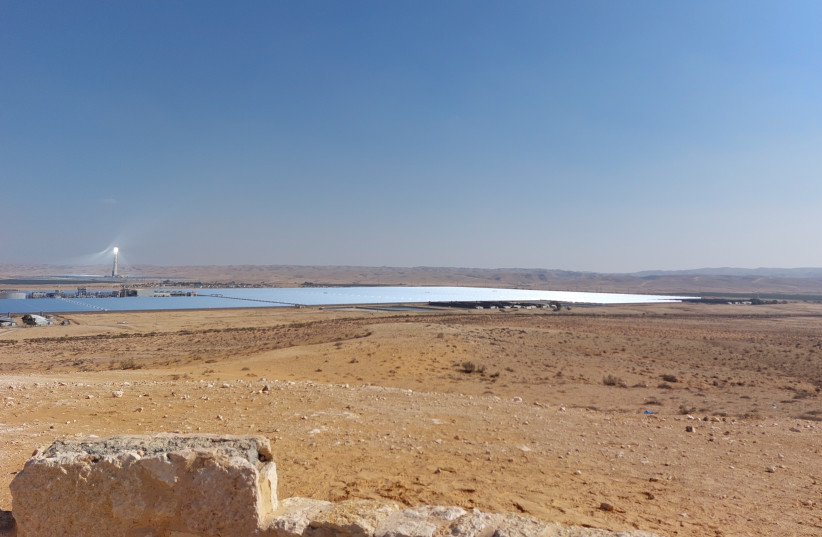Israel aims to bring its DeserTech climate technology community and expertise to the United Arab Emirates as part of its collaboration with Abu Dhabi through the Abraham Accords, Environmental Protection Minister Idit Silman said.
Silman met Thursday with her Emirati counterpart, Minister of Climate Change and Environment Mariam Almheiri, on the sidelines of the United Nations General Assembly in New York.
"The United Arab Emirates and Israel face similar challenges in everything related to climate change, and they share the desire to invest in innovative solutions to address this issue," Silman said. "There is great potential for cooperation with the United Arab Emirates in advancing environmental and climate technologies.
"The Abraham Accords have created many opportunities for both countries, both on the bilateral level and regionally. I have discussed with Minister Almheiri the aspiration to promote regional initiatives to address environmental and climate challenges jointly."
Specifically, the ministers discussed ways to work together through the Abraham Accords, including through expert dialogues on climate issues and exposure of the Emiratis to Israeli climate technology companies, focusing on those engaged in the DeserTech ecosystem.

What is DeserTech?
DeserTech is dedicated to advancing the development, customization, and market integration of technologies to promote sustainable living in arid climates. Supported by the Merage Foundation Israel and in close partnership with the Ministry of Environmental Protection and Ben-Gurion University, DeserTech is actively working towards transforming the Negev region into a global entrepreneurial hub for these climate technologies.
The UAE is among the countries expected to suffer most from global warming, according to multiple studies. Even if the world could meet its greenhouse gas emission reduction goals, scientists have said that the UAE and its Gulf neighbors will likely see a 2.5–3 degrees Celsius temperature increase over the next half-century.
Dubai is hosting the United Nations Climate Change Conference (COP28) beginning on November 30. During their meeting, Silman and Almheiri also discussed Israel's plan to invest NIS 9 million in a delegation it will send to COP28.
Prime Minister Benjamin Netanyahu and President Isaac Herzog are slated to attend the event, in addition to more than a handful of other ministers and more than 150 Israeli companies. The event runs for two weeks.
During the UNGA, Silman met with several counterparts and countries about climate collaboration, including Slovakia's Environmental Minister Milan Chrenko and Costa Rica's Minister of Environment and Energy, Franz Tattenbach.
The Environment and Climate Change portal is produced in cooperation with the Goldman Sonnenfeldt School of Sustainability and Climate Change at Ben-Gurion University of the Negev. The Jerusalem Post maintains all editorial decisions related to the content.
